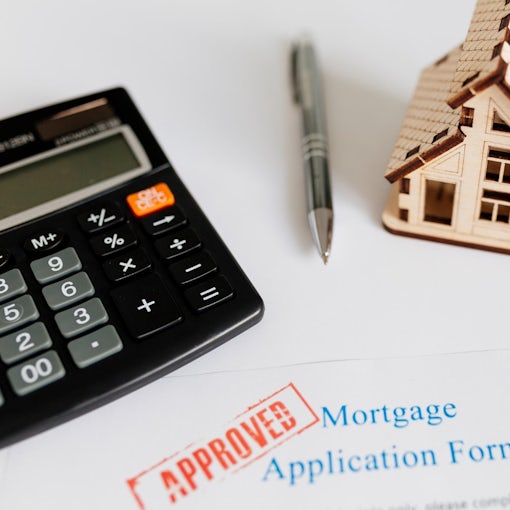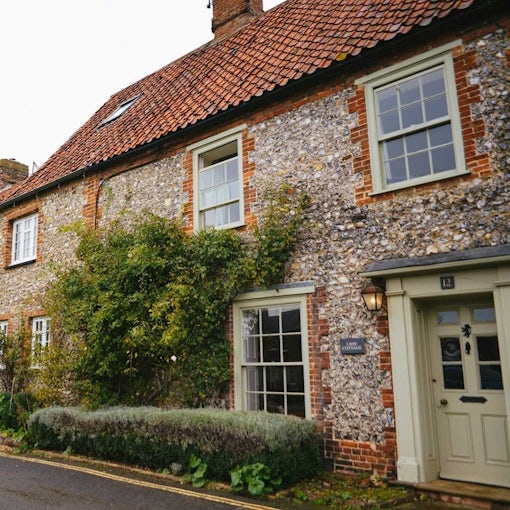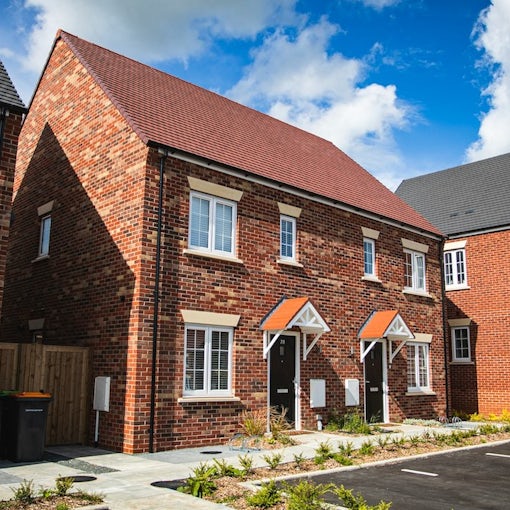“Penny wise, pound foolish” – A saying that is all too common concerning property investments. Many see it as the golden goose of wealth generation. But is it all it’s cracked up to be? Let’s roll up our sleeves and sift through the chatter to unearth the truth behind property investments.
The Lowdown on Property Investments
A Slow and Steady Climb in Property Value
As the adage goes, “slow and steady wins the race”, and that couldn’t be truer for property investments. Property values usually see a moderate climb of around 4-5% per year. Such a modest increase might seem like small beans initially, but let it simmer for 20 years and you’ve got some serious wealth.
The trick is picking the right property, and that’s where Belvoir Lincoln comes in. We’re experts at identifying properties with high growth potential.
Property as a Safe Haven
When pitted against other assets like gold, property investments often come out on top for one simple reason—reliability. They’re like the tortoise in the race, slow but dependable, capable of weathering economic storms.
At Belvoir Lincoln, we offer a superb selection of properties suitable for investment that can act as your private treasure chest!
The Yin and Yang of a Balanced Portfolio
Variety is the Spice of Investment
“Never put all your eggs in one basket”—a golden rule any savvy investor swears by. Property is just one piece of the rich tapestry that makes up a diversified investment portfolio. It could also include shares, gold, commodities, and commercial and residential real estate. This multifaceted approach can help insulate against risk and deliver more consistent returns.
Not sure how to start building your investment property portfolio? Don’t worry, our team of experts at Belvoir Lincoln are ready to lend a hand.
Residential vs. Commercial Property Investment
Investing in property isn’t a cut-and-dry affair—it’s more like choosing between apples and oranges. Both residential and commercial properties have their unique perks and pitfalls.
- Residential properties such as houses or apartments are the low-hanging fruit for new investors.
- They come with modest price tags and can dish out steady income through rent.
- But it’s not all sunshine and rainbows. Managing residential properties can be tricky, with tasks like tenant search, maintenance, and navigating a labyrinth of housing laws and regulations.
- Commercial properties, like office spaces or retail outlets, can be the golden ticket to higher returns. They offer longer leases and, most of the time, the tenants bear the brunt of maintenance costs.
- But remember, every rose has its thorns. Commercial properties often demand heftier initial investments and can be more susceptible to economic ebb and flow.
Regardless of the path you tread, it’s essential to weigh your investment goals, risk appetite, and management prowess. And remember, at Belvoir Lincoln, we’ve got your back, guiding you through your property investment adventure step by step.
Timing the Market
“Time and tide wait for no man”, and neither does the market. Playing the waiting game for peak gains is like trying to catch a falling knife—risky and potentially painful.
A more sensible approach might be playing the long game with consistent investments backed by thorough research (and we at Belvoir Lincoln specialise in that). Then sit back, relax and let your investments do the hard work.
Leveraging in Property Investments
In the investment world, leveraging is borrowing money to invest, which, if handled wisely, can catapult your property investment returns to new heights.
However, just as a coin has two sides, leveraging also comes with its fair share of risks. Belvoir Lincoln can help you benefit from safe leveraging in property investments.
Case Study: Leverage and Rental Income
Let’s turn back the clock to 2000, and imagine Bob, an investor who dipped his toes in the waters of residential property investment for the first time.
He laid his eyes on a promising property in a budding neighborhood with a price tag of £100,000. He decided to shell out 20% (£20,000) as a deposit and financed the remaining £80,000 through a mortgage.
He planned to rent out the property and have the rental income cover the mortgage payments. As years rolled by, the property bloomed like a flower in spring with an appreciation rate of around 5% annually, which was on par with market trends.
Twenty years down the line, in 2020, the property’s value had snowballed to approximately £265,000, making a hefty profit of £165,000. After accounting for the mortgage, Bob was left with a tidy profit from his initial investment.
Despite expenses like property taxes, maintenance, and mortgage interest, his initial investment of £20,000 had still mushroomed significantly.
Plus, renting out the property provided him with a steady income. Although juggling between tenant issues and property maintenance was no walk in the park, the rental income covered his mortgage payments and provided a good bit of extra change.
This tale underscores the impressive potential in rental property investment, particularly when leveraging is judiciously wielded. However, it also underlines the need for careful property selection, scrupulous market research, and top-notch property management.
Throughout the journey, our investor navigated choppy waters, from fluctuating mortgage interest rates to unforeseen maintenance issues. The sage advice and guidance extended by the team at Belvoir Lincoln were like an anchor in a storm, helping him turn his property investment into a veritable cash cow.
It’s essential to enter into property investing armed with a solid understanding of the market, know-how concerning choosing suitable properties, and the backup of a seasoned property management team like Belvoir Lincoln by your side.
The Art of Using Leverage
While financial leveraging can be a golden ticket to potential high returns, it’s vital to analyse potential returns meticulously for a genuine snapshot of potential profits.
- Start by calculating the Return on Investment (ROI). For instance, let’s say you purchased an investment property for £100,000 and spent an additional £20,000 on renovations. Your initial investment totals £120,000. After a few years, you sell the property for £160,000. To calculate ROI, you subtract the initial investment from the final return (£160,000 – £120,000 = £40,000), then divide that by the initial investment (£40,000 / £120,000). This gives you an ROI of 0.33, or 33 per cent, indicating a successful investment. Remember, our team at Belvoir Lincoln can provide a more detailed analysis tailored to your unique situation.
- When using leverage, account for interest payments on the borrowed funds.
- Consider the projected rental income to offset mortgage payments.
- Factor in upkeep costs and potential property appreciation.
- Take into account any tax implications tied to owning and renting property.
For a detailed analysis based on your situation, our team at Belvoir Lincoln can provide a clear picture of your financial commitment, potential windfall, and risks.
Conclusion
In summary, while property investments hold significant potential for wealth creation in the long term, you must approach them with a balanced perspective – not as some kind of get-rich-quick scheme! Consider property as a part of a diversified portfolio and leverage investments wisely. The key to successful property investing often lies in making informed decisions, and that’s where Belvoir Lincoln can help you.
FAQs
How can I finance my first property investment?
Financing your first property investment in the UK can be achieved through several avenues. The most common method is using a buy-to-let mortgage, a loan specifically designed for individuals looking to buy property for investment purposes. These mortgages are typically interest-only, meaning your monthly repayments are lower, but you must pay off the entire loan amount at the end of the mortgage term.
Another option is to tap into your own savings or personal network to raise the necessary funds. Bear in mind, however, that this ties up your capital and may have implications for your pension or retirement plan.
Finally, you might consider crowdfunding or property investment groups. These allow you to pool resources with other investors, reducing individual risk and increasing purchasing power.
Each financing method has benefits, risks, and considerations. So, consult a property investment expert, such as our qualified mortgage team at Belvoir Lincoln, to understand the best investment strategy tailored to your financial situation and goals.
How do I determine the value of an investment property?
Determining the value of an investment property involves a combination of methods and other factors. A common approach is to examine comparable sales in the area, adjusting for differences in features, size, and condition. Doing so means assessing recently sold properties in the same or similar neighbourhoods that share characteristics with the property you’re considering.
Another method is calculating the potential income the property could generate.
This method, known as the income approach, is ideal for rental properties.
Let’s illustrate the income approach with a simple numerical example. Suppose you’re considering purchasing a rental property that is expected to generate £20,000 annually in rental income. The estimated annual operating expenses, including property taxes, insurance, and maintenance, come to £5,000. Therefore, the net income is £20,000 – £5,000 = £15,000.
Now, assume a capitalisation rate of 5% is deemed appropriate for this type of property in the current market conditions. To calculate the property’s value, divide the net income by the capitalisation rate: £15,000 / 0.05 = £300,000.
In this example, according to the income approach, the property’s value would be estimated at £300,000.
Having a property valued professionally can provide an accurate and detailed assessment. At Belvoir Lincoln, we provide comprehensive property valuation services that consider all these factors to help you evaluate the potential of any investment property.













